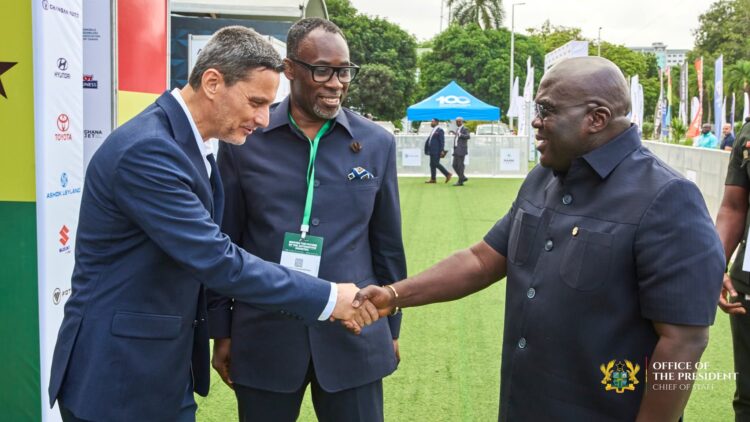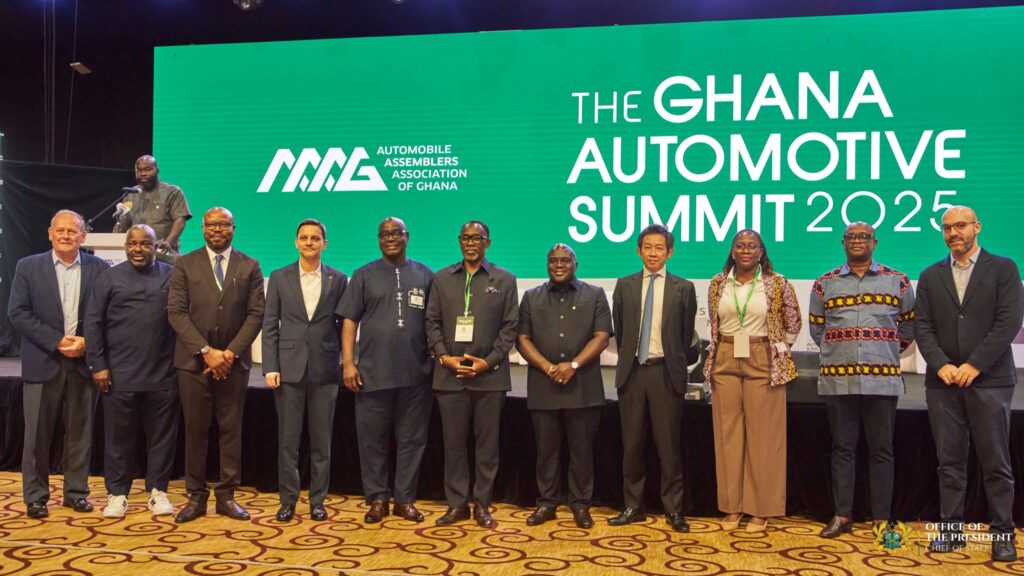Ghana is revving up its engines to become the undisputed automotive powerhouse of West Africa, following an exciting Ghana Automotive Summit 2025 that brought together industry leaders, policymakers, and global investors.
Held under the theme “Towards the Future of Mobility,” the summit showcased Ghana’s accelerating capacity in vehicle assembly and component manufacturing. With nine major assembly plants already operational and global brands like Toyota, Volkswagen, and Nissan in play, Ghana is positioning itself as a regional hub for automotive production.
During the summit, the Automobile Assemblers Association of Ghana (AAAG) expressed its readiness to tap into the growing appetite for the automotive sector across Africa.

“There is a strong appetite for the auto sector, not only in Ghana but across Africa,” said AAAG President and Volkswagen Ghana CEO Jeffrey Oppong Peprah. “Producing locally, manufacturing components and supplying markets in the sub-region will create big investments and job opportunities for the youth, both skilled and unskilled, which money will also be spent in the local economy.”

Mr. Peprah further urged the government to prioritize the full implementation of auto policies. “A clear and coordinated strategy is essential if we are to build a thriving industry capable of serving not just Ghana, but the entire West African region… With the right policy framework in place, Ghana can emerge as a true automotive hub for the sub-region.”
The government echoed this vision. Representing President John Dramani Mahama, Chief of Staff Julius Debrah reaffirmed the administration’s commitment: “The president has asked me to assure you that government will support the transformation of Ghana’s automotive sector into a West African hub for production and export. President Mahama believes in the private sector and entrepreneurs, and his doors remain open for collaboration.” Debrah also encouraged local assemblers to broaden their vision beyond Ghana and leverage opportunities throughout the West African market. “We want to encourage as many Chinese manufacturers as possible to consider setting up assembly plants or establishing new entities in Ghana,” he added.
The Ghana Automotive Development Policy (GADP), introduced in 2019, has helped lay the foundation for domestic assembly. To date, nine major assembly plants have been established. However, while production capacity continues to grow, consumer-level uptake remains sluggish due to financing challenges.
The summit featured keynotes from regional and international stakeholders, including former AAAM CEO Dave Coffey, who called for an inclusive and long-term roadmap. Toyota Ghana’s Managing Director, Yanaka Khoji, backed Ghana’s industrial ambitions, emphasizing that greater local production would reduce prices and stimulate demand.
A major talking point was the government’s 24-Hour Economy policy, which garnered widespread support for its potential to boost productivity and job creation. The summit also spotlighted Ghana’s emerging electric vehicle (EV) agenda, with plans to establish an EV plant in collaboration with Chinese investors, leveraging the country’s lithium reserves.
Ultimately, Ghana’s vision is crystal clear: to become a fully integrated and competitive industrial hub for the automotive industry in the West Africa sub-region.
To drive home the urgency of policy enforcement, assemblers at the summit called on the government to implement a ban on used vehicle imports older than 10 years, enforce a 35 percent import duty on vehicles aged between one and five years, and apply the Ghana Standards Authority’s homologation requirements across all imported vehicles.
These measures, they emphasized, are vital to protect the local industry, improve road safety, and ensure that Ghana’s journey toward becoming a regional automotive leader is built on a foundation of quality and resilience.



